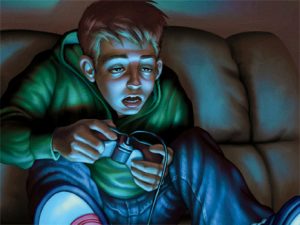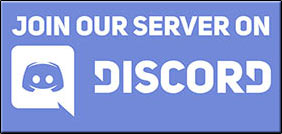Despite evidence, Gaming could be misrepresented as a mental health disorder
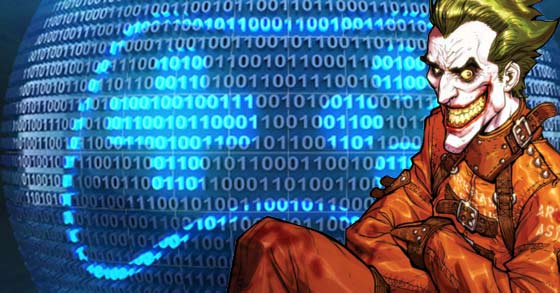
In 2015, ‘Internet Gaming Disorder’ (IGD) was added to the Diagnostic and Statistical Manual for Mental Disorders 5 (DSM-V) as a preliminary diagnosis. Its preliminary status meant that a set of diagnostic criteria was proposed for the disorder, but encouraged researchers to explore the validity of the diagnosis before making it official.
Towards the end of 2016, things started becoming a bit more concrete in the world of video game addiction. Despite still waiting for the first wave of research results following the DSM-V’s inclusion of IGD, the World Health Organisation has included Gaming Disorder in the beta draft for the International Classification of Diseases 11 (ICD-11); a final version will be published this year. It is safe to say that researchers are not happy about this move. An open-access debate paper has been published on the matter which criticizes the move as premature and dangerous. The abstract of the paper is particularly poignant:
“Concerns about problematic gaming behaviors deserve our full attention. However, we claim that it is far from clear that these problems can or should be attributed to a new disorder….Our main concerns are the low quality of the research base, the fact that the current operationalization leans too heavily on substance use and gambling criteria, and the lack of consensus on symptomatology and assessment of problematic gaming”.
“The act of formalizing this disorder”, even as a proposal, has negative medical, scientific, public-health, societal and human rights fallout that should be considered. Of particular concern are moral panics around the harm of video gaming…We expect that the premature inclusion of Gaming Disorder as a diagnosis in ICD-11 will cause significant stigma to the millions of children who play video games as part of a normal, healthy life. At this point, suggesting formal diagnoses and categories is premature: the ICD-11 proposal for Gaming Disorder should be removed to avoid a waste of public health resources as well as to avoid causing harm to healthy video gamers around the world.
Two authors of this debate paper have recently published their wave of results into the proposed diagnostic criteria. This paper, ‘Video gaming in a hyperconnected world: A cross-sectional study of heavy gaming, problematic gaming symptoms, and online socializing in adolescents’, explores different classifications of gamers and how it relates to their mental well-being. Their hypotheses derive from the treatment of long amounts of gaming as an addiction. They argue that those who spend long amounts of time gaming are addicted to the act of gaming, causing a deterioration in their mental well-being and a lack of engagement with others.
From these results, this does not appear to be the case. I have written a full breakdown of the paper here, but the main findings are as follows:
– For males, there is a ‘normative’ group that does not play games very often, followed by five unique groups of gamers. For females, there is a non-gaming ‘normative’ group and two unique groups of gamers.
– Male gamers who talk with other gamers report less depressive symptoms than other male gamers.
– Conversely, male gamers who spend little time talking to others online while gaming are significantly more likely to be more lonely, anxious, self-conscious and report more depressive symptoms.
– Male gamers who play a lot of games and have poor offline friendships, yet good online relationships are protected from loneliness, anxiety and low self-esteem.
– Female gamers who play online games are less lonely and anxious than girls who do not play games.
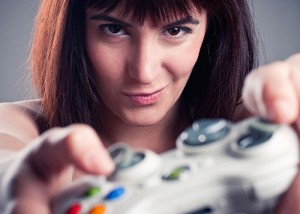
“Female gamers who play online games are less lonely and anxious than girls who do not play games” So there you go ladies, now, get busy with some vidya 😉
From these findings, the research team argues that the proposed criteria is too simplistic as it does not account for factors such as socialising, motivation for playing and how it impacts their mental well-being. In this case, a group of heavy gamers was identified that had poor quality of offline friendships, but their online bonding with friends helped protect against factors such as anxiety, loneliness and low self-esteem. Not only has this diagnostic criteria been shown to lack validity already, but this research has identified that gaming can be a positive thing for vulnerable populations.
You may be asking yourself why this is bad and why you should care. It is bad because it is bad practice. If you are going to label someone, it is only courteous to evaluate whether these labels are valid. Not only is this a pre-emptive inclusion for something that is poorly researched, but the research which has been conducted shows that they are indeed not valid.
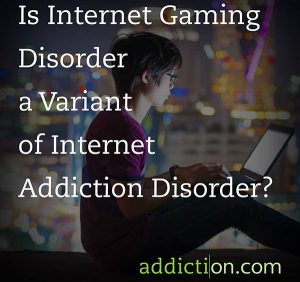
“Is Internet Gaming Disorder a Variant of Internet Addiction Disorder?” – By Mark Griffiths, PhD, addiction.com
The reasons why you should care are a bit more serious. There is a degree of guilt and dissatisfaction in the mental health system for ignoring people’s individuality and simply labeling them because they exhibit a cluster of symptoms. However, this process is considered necessary as a diagnosis is a vehicle towards specialized treatment that will lead to a better quality of life.
Although Gaming Disorder could be recognised as a mental health disorder, there is currently no plan put in place for how to treat it. Let’s say someone plays online games for social support. Do you treat the video game ‘addiction’ and ignore the socialisation aspect? Do you wean the person from video games while teaching them social skills? Do you wean people from their online friends? It’s all very unclear. There is also a degree of irresponsibility as heavy gaming could be a symptom of an underlying mental health issue rather than being the mental health issue. Finally, the single known treatment for video game addiction exists in Asia – harrowing military-style boot camp clinics.
This is something that I feel more people should be aware of. This is the under-researched disordering of a hobby that academics are fighting against for future generations of gamers. If more people know what is happening, if more people speak out about it, we may hopefully be looking at a revised version of the ICD-11 later this year.
Sources and resources:
psychologytoday
researchgate
sciencedirect
platinumparagon
telegraph.co.uk
Credit:
Platinum Paragon – Author(@PlatinumParagon – platinumparagon.wordpress.com/)
Robin Ek – Editor
***Disclaimer***
This is a personal opinion of the writer, and it doesn’t necessarily represent the other writers (nor The Gaming Ground´s) opinions.
More by Guest Author:
- Exploring online roulette variations – Beyond the classic game
- Immersive escapism: Exploring the psychology behind virtual reality theme parks
- Immerse yourself in the world of gaming anime (2024 ed)
- Mate Casino and Dundeeslots Casino: What is the difference? (2024 ed)
- Inside Little Misfortune: A Steam Classic (2024 ed)
Tags: Gamer, Gamers, Gaming, Internet Gaming Disorder, Mental health disorder



